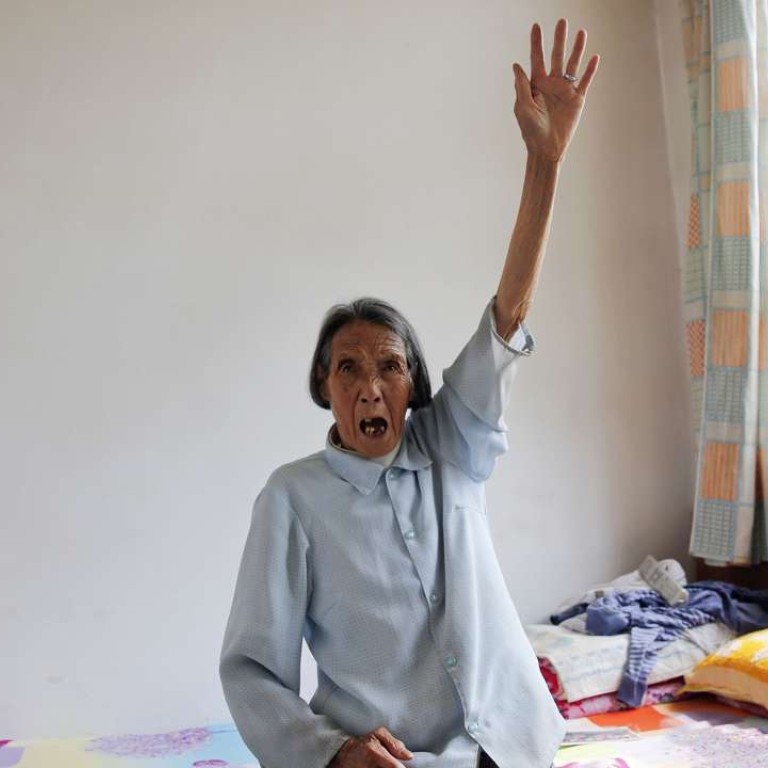
Learn from the past to build a better world, ‘comfort women’ historian urges young Chinese
Amid Hong Kong oath-taking row, founder of museum dedicated to girls and women forced to work in wartime brothels urges understanding of country’s history
Young Chinese, including those in Hong Kong, must learn from history if they truly want to make the world a better place, says the founder of Shanghai’s first “comfort women” museum that opened at the weekend.
“It’s always important to learn from history,” said Professor Su Zhiliang of Shanghai Normal University, who spent more than two decades researching the issue of comfort women – a euphemism for girls and women forced to work in Japan’s wartime military brothels.
“For the young generation, it is an empty promise to make the world better without an understanding of history,” Su said.
“It’s advisable for the younger generation in Hong Kong to learn more about Chinese history since 1840. It will eventually benefit the long-term growth of Hong Kong if the young people understand this history.”
It is an empty promise to make the world better without an understanding of history
The public opening of the Chinese “Comfort Women” History Museum on Saturday – at present the only such museum on the mainland – came amid a continuing row about oath-taking in Hong Kong’s legislature, where two young legislators pronounced China as “Chee-na”, similar to the “Shina” reference used by Japan for the country and deemed derogatory since the Sino-Japanese wars.
Su said the museum would serve as proof of the torture China’s citizens suffered during the second world war.
The museum, at Shanghai Normal University, displays dozens of items such as condoms, letters written by the women, and photos and identification cards of the victims.
A statue of a Chinese and a South Korean girl at the museum drew much attention.
A similar statue was installed in front of Japanese embassy in Seoul in 2011.
The museum opening was part of an international seminar on war and peace held at Shanghai Normal University, Su said.
The event drew about 200 scholars from countries including China, South Korea, the United States and Japan.
The professor has called for greater efforts to protect historical documents detailing the suffering of the comfort women, many of whom were left infertile.
Su said more work would take place to fine-tune the museum, including a recreation of a space where comfort women lived.
As the war has been over for more than 70 years, fewer and fewer youngsters today are aware of this part of history
Jin Shenghong, a historian who has researched the Japanese occupation in Nanjing, said Imperial Japan had grievously injured Chinese women during its occupation of China and the use of comfort women was just one of many issues.
“As the war has been over for more than 70 years, fewer and fewer youngsters today are aware of this part of history,” Jin said. “The Japanese army set up 50 comfort stations in Nanjing alone, and more than 200,000 women were raped by the Japanese army during the occupation.”
Some 400,000 women in Asia were forced to serve as sex slaves for the Japanese military during the second world war, Xinhua
reported.
“The history of comfort women is always a wound for China and a painful memory for our nation,” said Lu Yaodong, a researcher on Sino-Japanese relations at the Chinese Academy of Social Sciences.
The history of comfort women is always a wound for China and a painful memory for our nation
There were only 19 former comfort women still alive in China, Su said.
Yoshihide Suga, Japan’s chief cabinet secretary, expressed disappointment on Monday that the museum had opened, saying it was unhelpful in improving Sino-Japanese relations and was “extremely regrettable”.
Su said he was surprised to hear a reaction from a senior Japanese government official.
“Global organisations including the United Nations have already reached common agreement on this issue, he said. “Such behaviours should be condemned and people should learn the history so as to avoid it happening again.”

